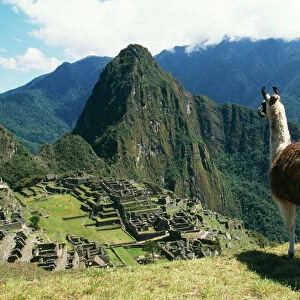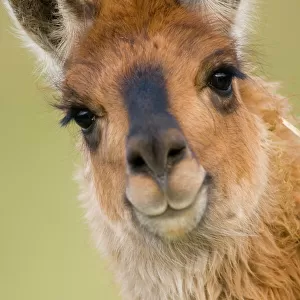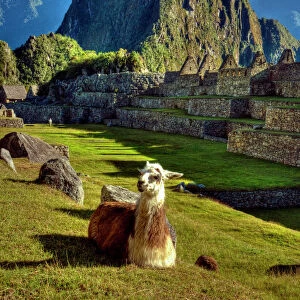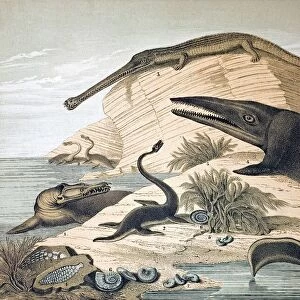Home > Arts > Artists > H > Benjamin Waterhouse Hawkins
Lama glama, llama
![]()

Wall Art and Photo Gifts from Mary Evans Picture Library
Lama glama, llama
Llama. Llama Glama, July 23 1884. Hand coloured lithograph of a drawing by Benjamin Waterhouse Hawkins from Gleanings from the Menagerie and Aviary at Knowsley Hall; Hoofed Quadrupeds, 1850, by John Edward Gray
Mary Evans Picture Library makes available wonderful images created for people to enjoy over the centuries
Media ID 8618101
© Mary Evans Picture Library 2015 - https://copyrighthub.org/s0/hub1/creation/maryevans/MaryEvansPictureID/10706278
1800 1875 Adult Agriculture Artiodactyl Artiodactyla Breed Breeding Camelidae Captivity Epitheria Eutheria Even Toed Ungulate Gleanings Gray Habitat Herbivore Herd Hoofed John Edward
FEATURES IN THESE COLLECTIONS
> Animals
> Farm
> Camelids
> Llamas
> Animals
> Mammals
> Camelidae
> Glama
> Animals
> Mammals
> Ungulates
> Arts
> Artists
> H
> Benjamin Waterhouse Hawkins
EDITORS COMMENTS
Lama Glama, also known as the Alpaca, is depicted in this stunning hand-colored lithograph from the 19th century. The illustration, created by Benjamin Waterhouse Hawkins and published in "Gleanings from the Menagerie and Aviary at Knowsley Hall: Hoofed Quadrupeds," showcases a herd of adult Lama Glama grazing peacefully in a pastoral setting. Lama Glama is a domesticated species of South American camelid, belonging to the family Camelidae and the order Artiodactyla. They are even-toed ungulates, which means they have two toes on each foot. This herd animal is known for its soft, dense wool, making it a valuable breed for agriculture and textile industries. The Lama Glama was first introduced to Europe in the late 18th century and quickly gained popularity due to its docile nature and valuable wool. In the 1800s, breeding and farming of Lama Glama became a significant industry, especially in countries like Peru, Chile, and Bolivia. The illustration captures the Lama Glama in their natural habitat, which is typically high-altitude grasslands in South America. They are herbivores, feeding on a variety of vegetation, including grasses, leaves, and shrubs. The animals are often kept in herds and are social animals that form strong bonds with each other. This beautiful and intricate drawing by John Edward Gray and Benjamin Waterhouse Hawkins provides a glimpse into the past, showcasing the Lama Glama in its natural setting before it became a popular farm animal and textile source. The illustration is a testament to the artistic and scientific interests of the 19th century, making it a valuable addition to any collection of animal art or natural history.
MADE IN THE UK
Safe Shipping with 30 Day Money Back Guarantee
FREE PERSONALISATION*
We are proud to offer a range of customisation features including Personalised Captions, Color Filters and Picture Zoom Tools
SECURE PAYMENTS
We happily accept a wide range of payment options so you can pay for the things you need in the way that is most convenient for you
* Options may vary by product and licensing agreement. Zoomed Pictures can be adjusted in the Basket.







